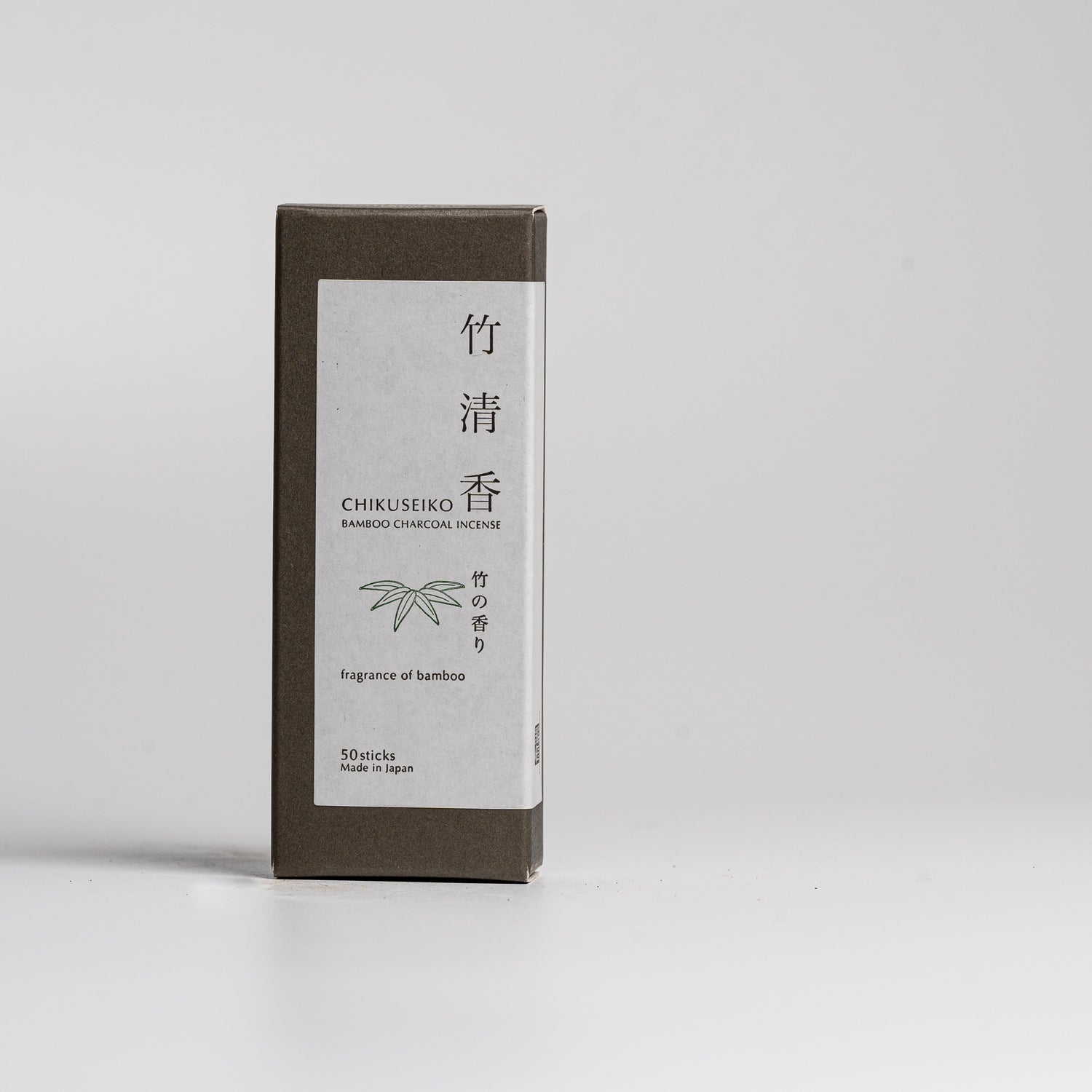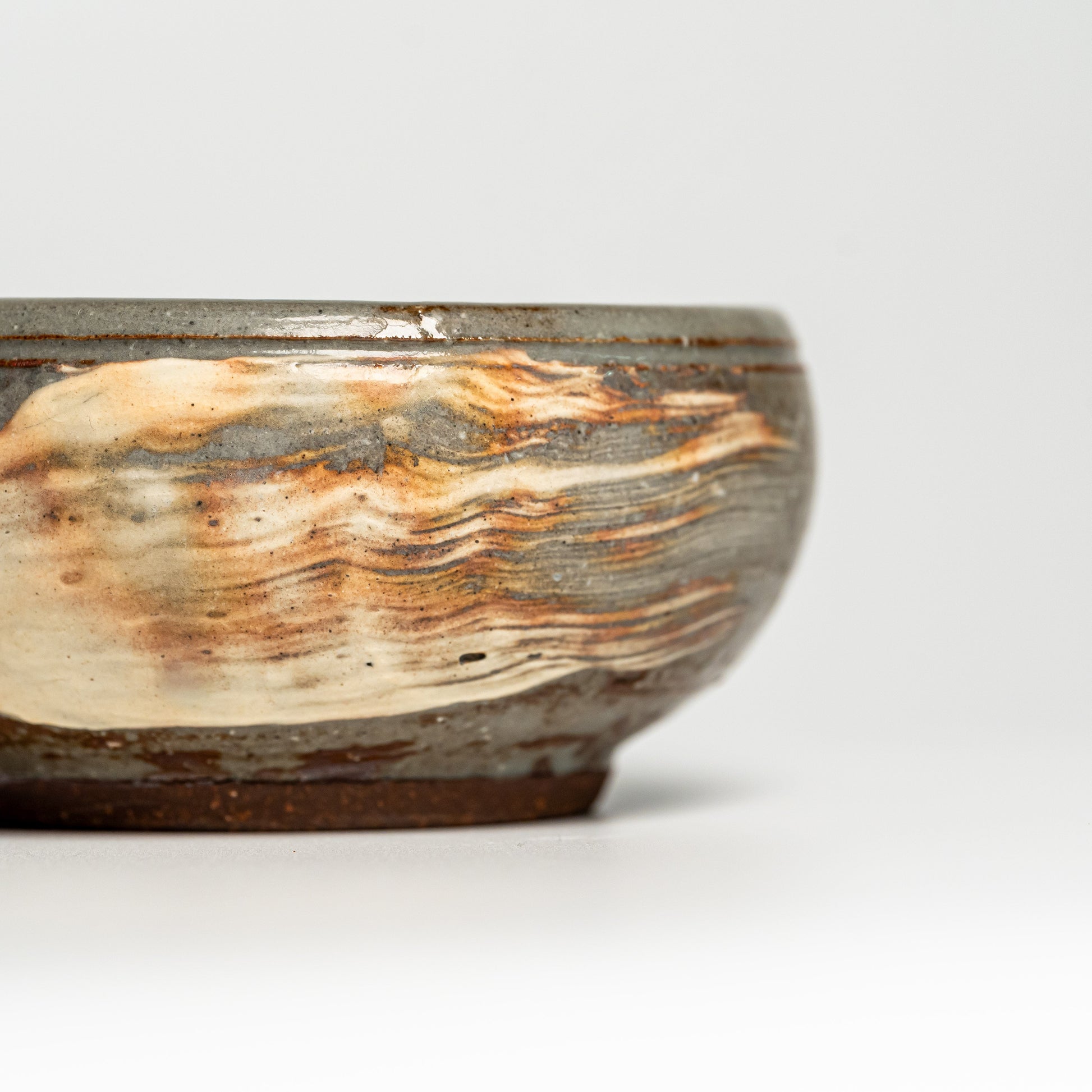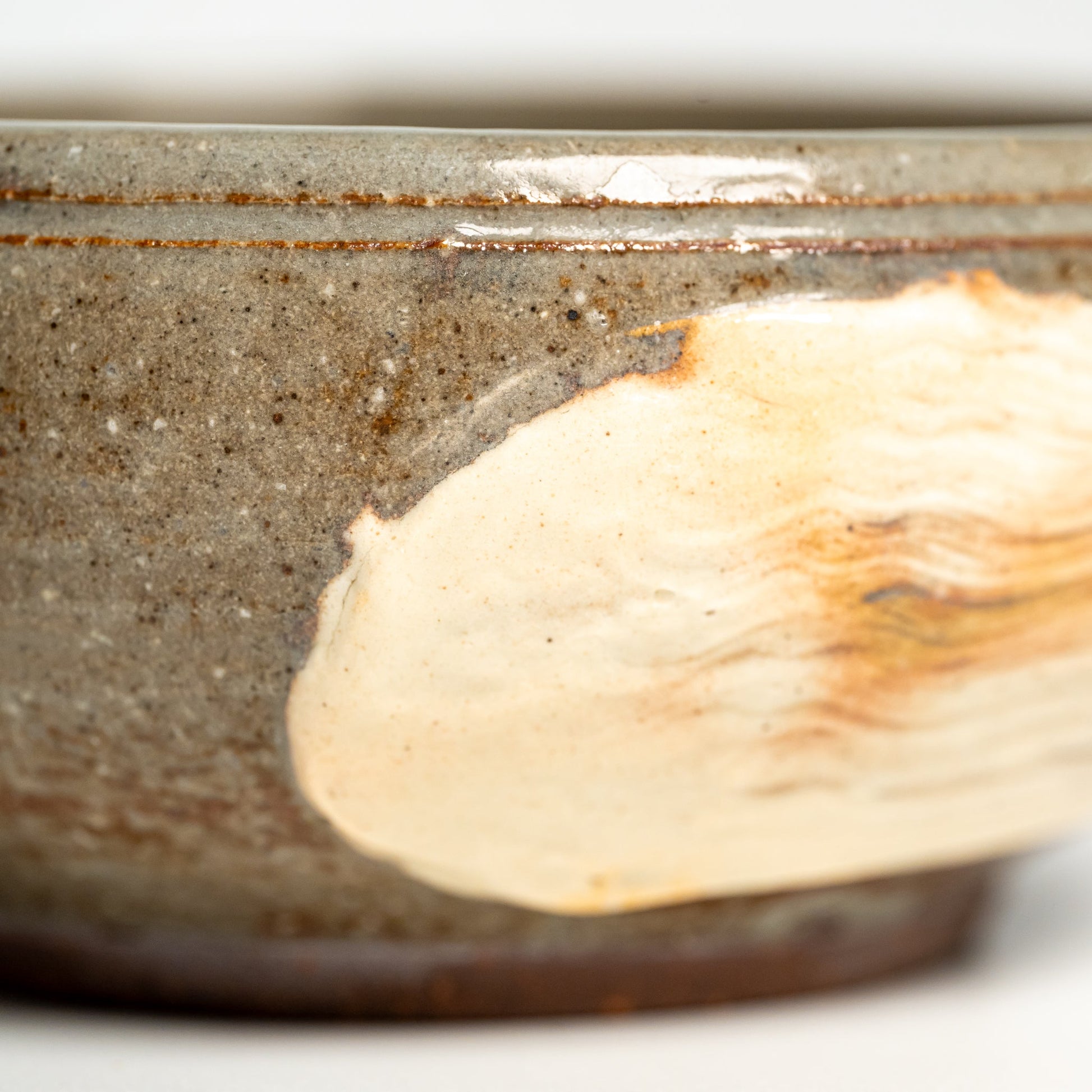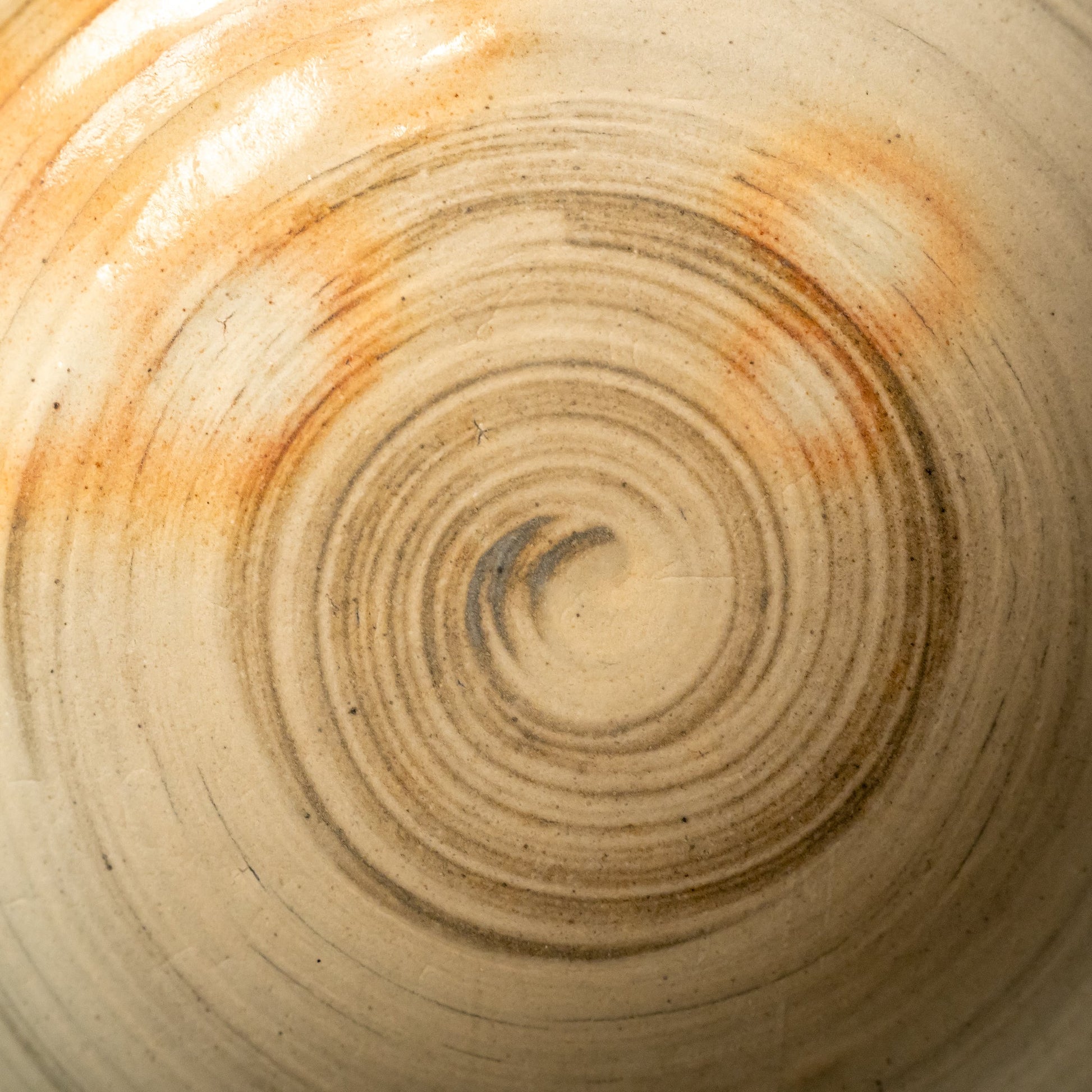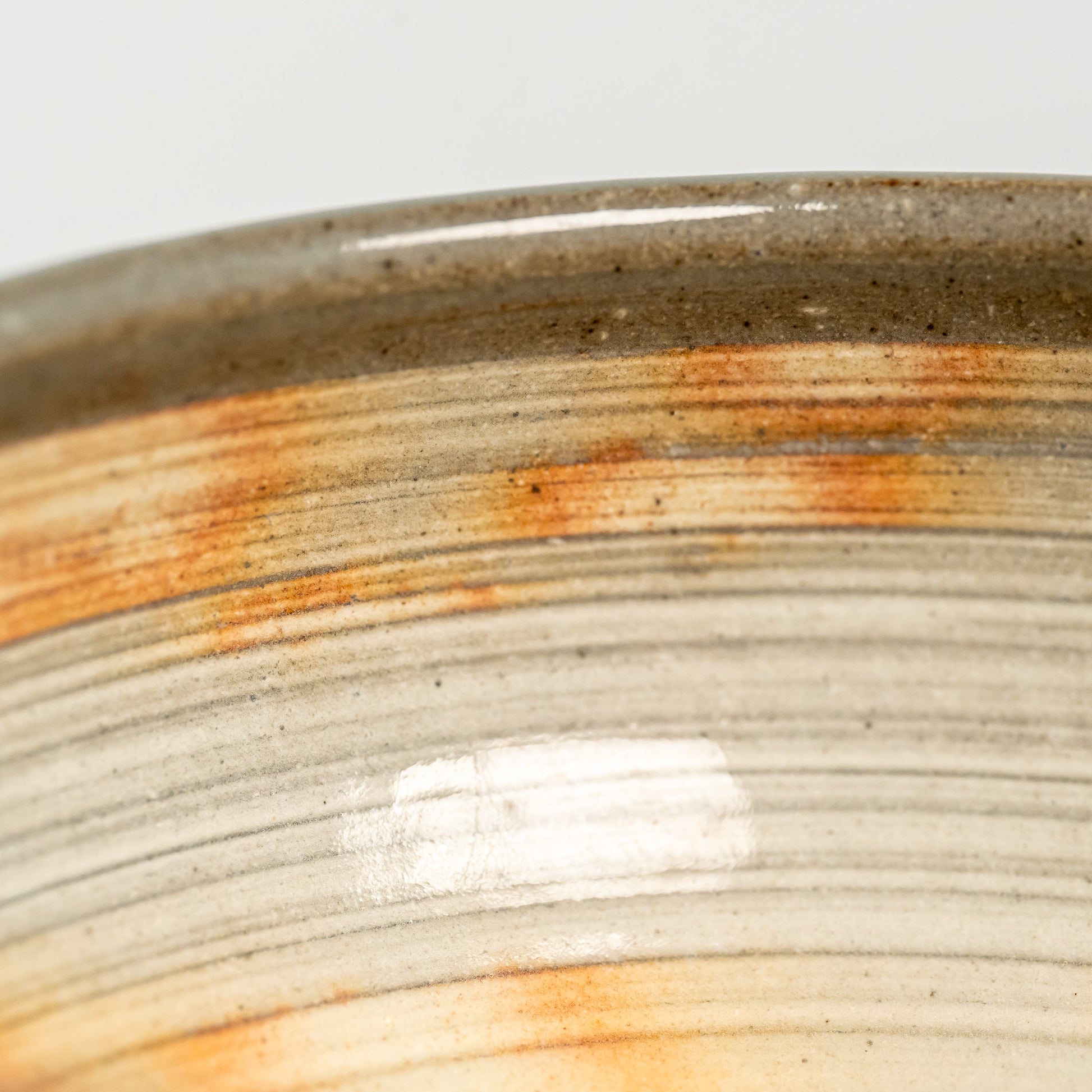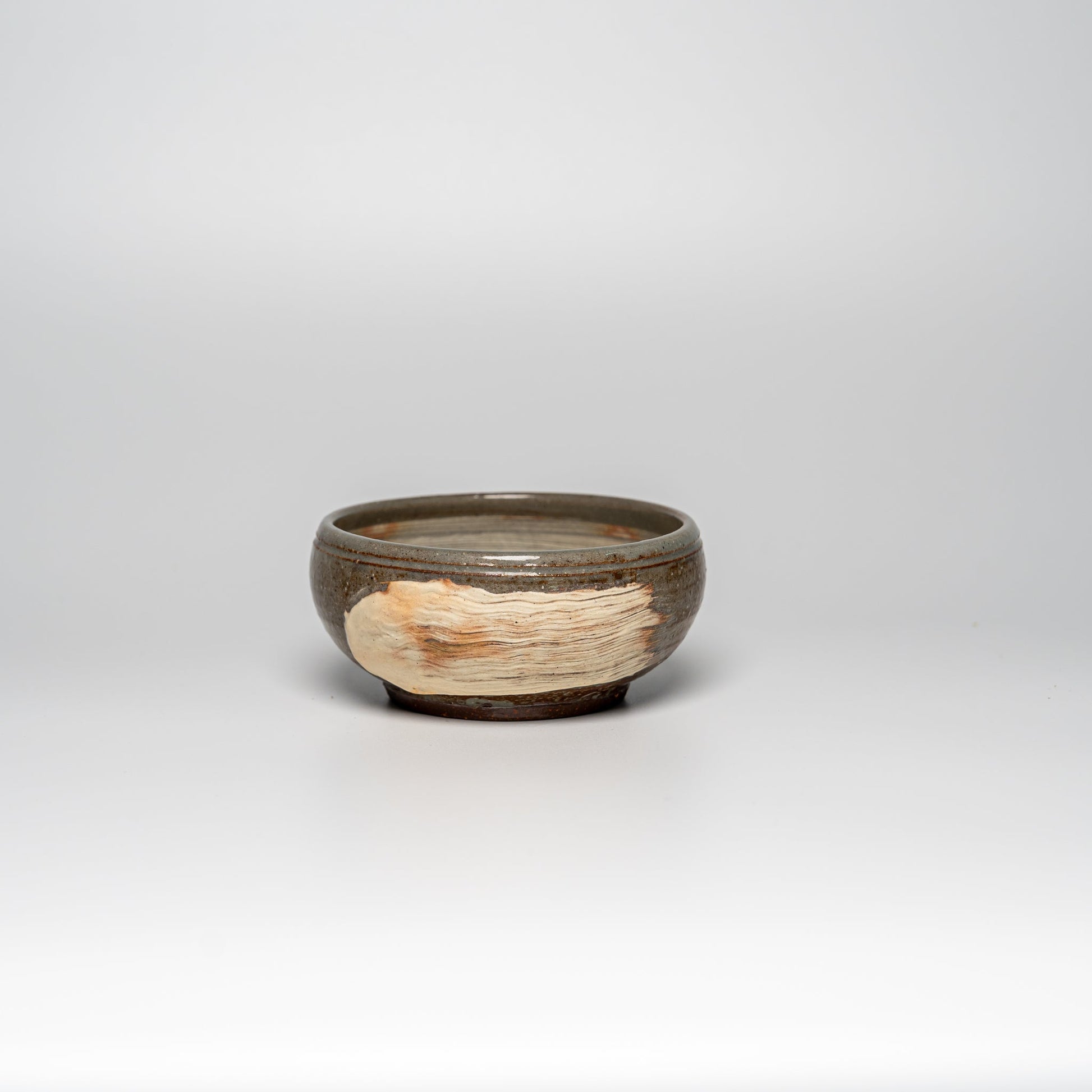Sohei Matsuno
Hakeme Side Dish
Hakeme Side Dish
刷毛目小鉢
Only a few items left
Couldn't load pickup availability
The white brush stroke on this bowl's exterior appears thicker than others within the series. Against the neutral grey glaze, it creates an attractive rustic aesthetic. The dish is perfect for sides of daikon, pickles, dips, and sauces.
Each piece of Matsuno-san's Hakeme series is delicately crafted by hand and can be distinguished by the white glaze brush stroke adorned on the exterior. The pieces in the series feature several orange spots referred to as maple leaves or Momiji. Clusters of these momiji spots are often called Gohonte, named after the order forms and catalogue books (gohon) that tea masters used in the Azuchi-Momoyama period to order tea bowls from potters and kilns.
Height: 50mm
Width: 110mm
As each item is handmade, slight size, spotting and colour variations may exist between items.
Origin
Origin
Handcrafted in Hagi, Yamaguchi Prefecture
Sohei Matsuno
Sohei Matsuno
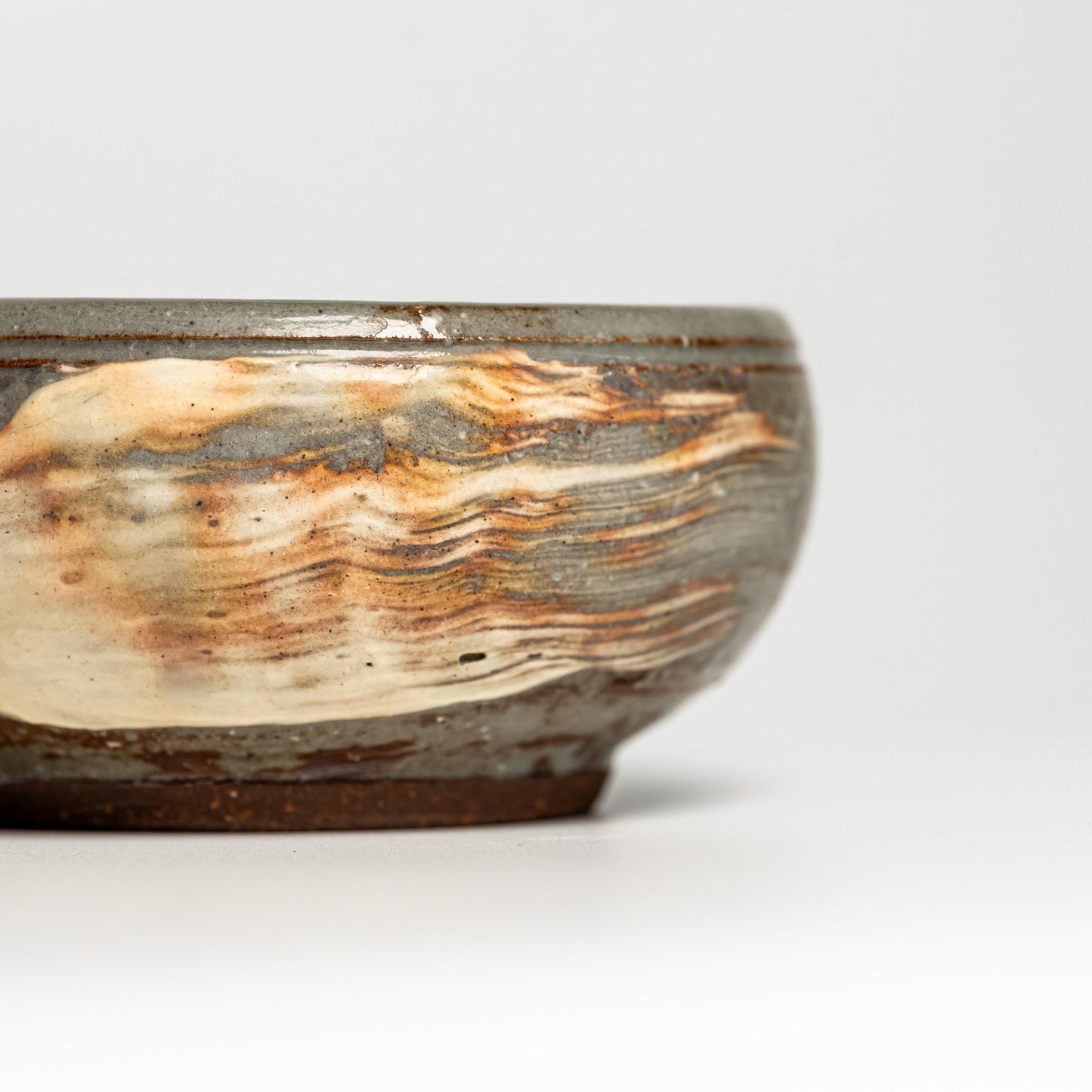
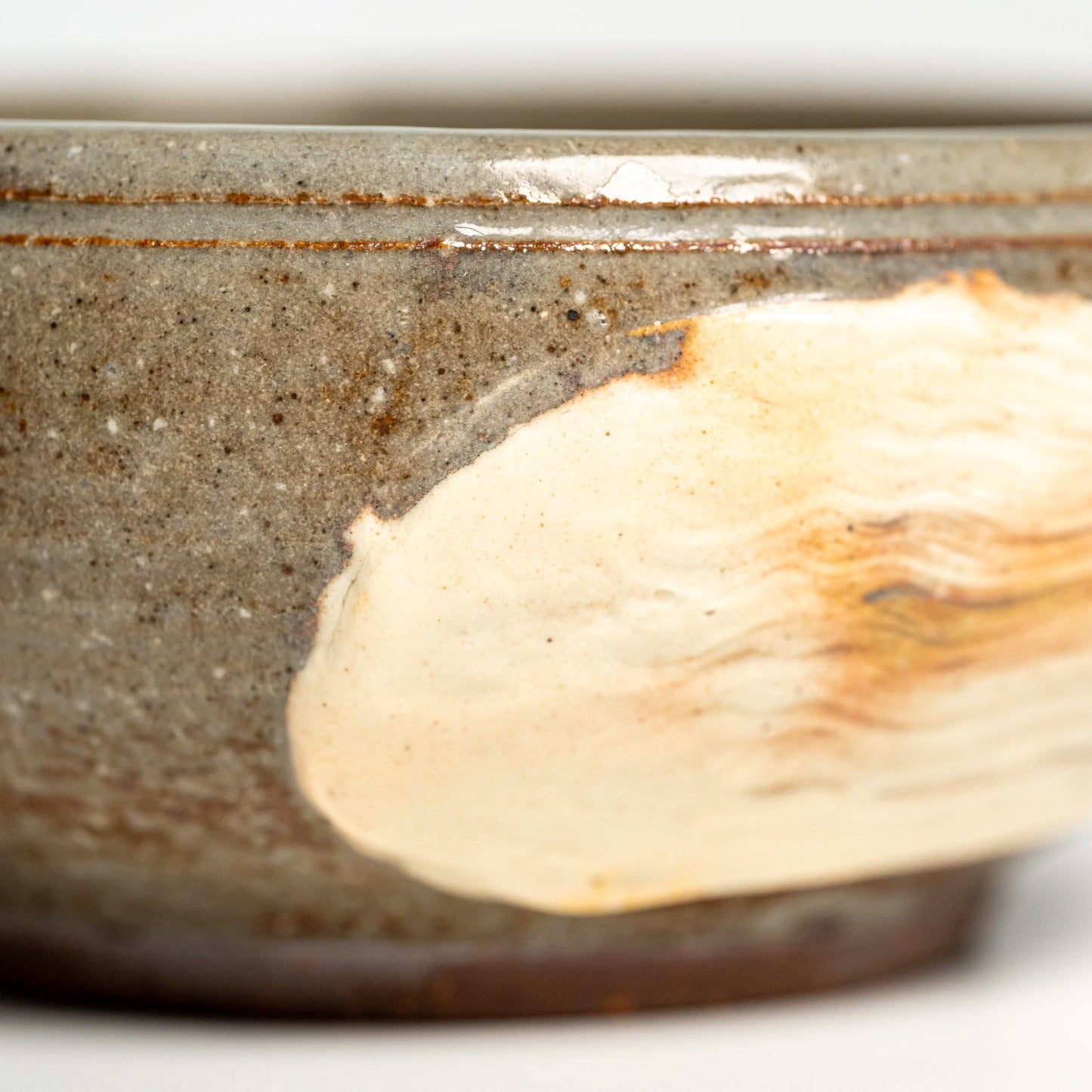
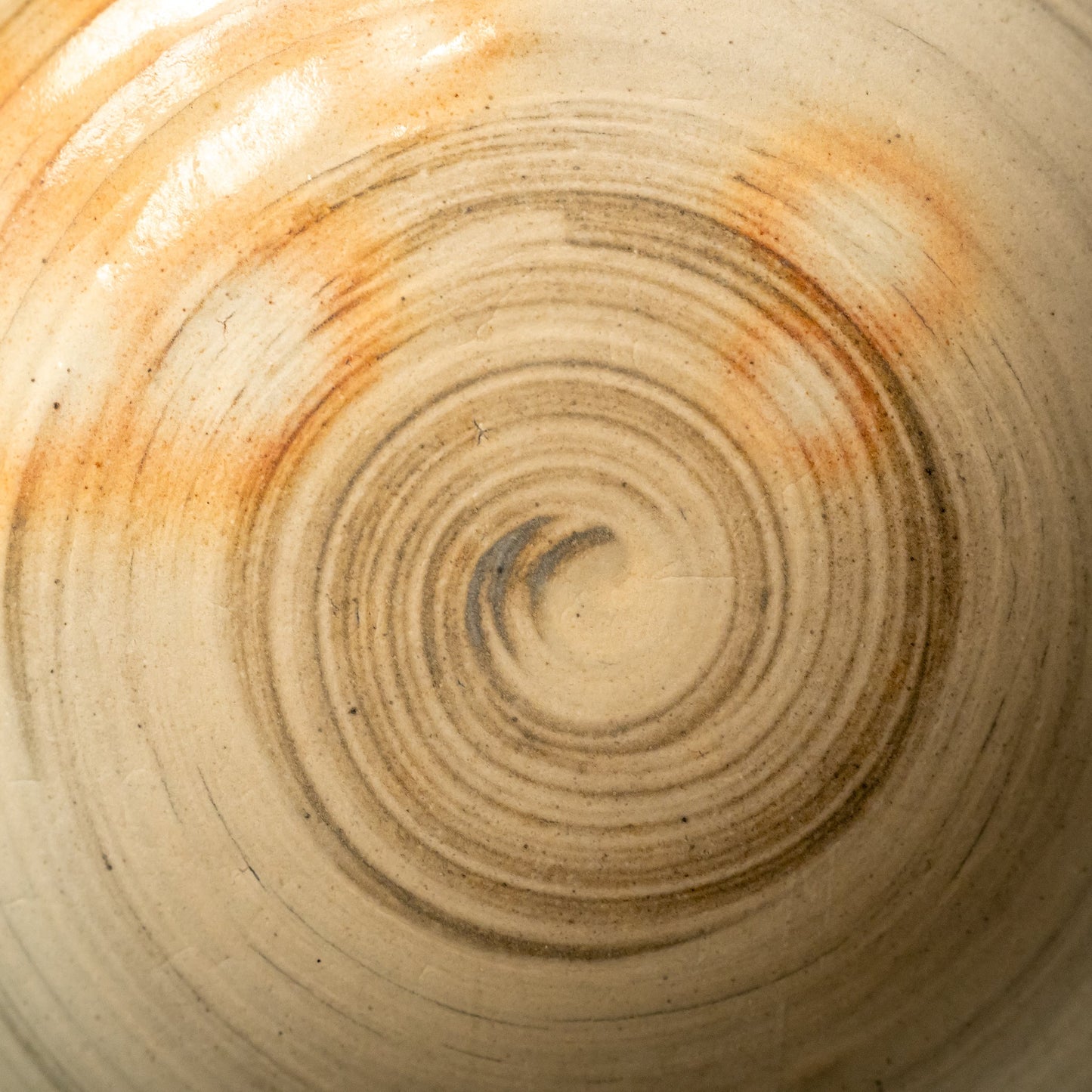
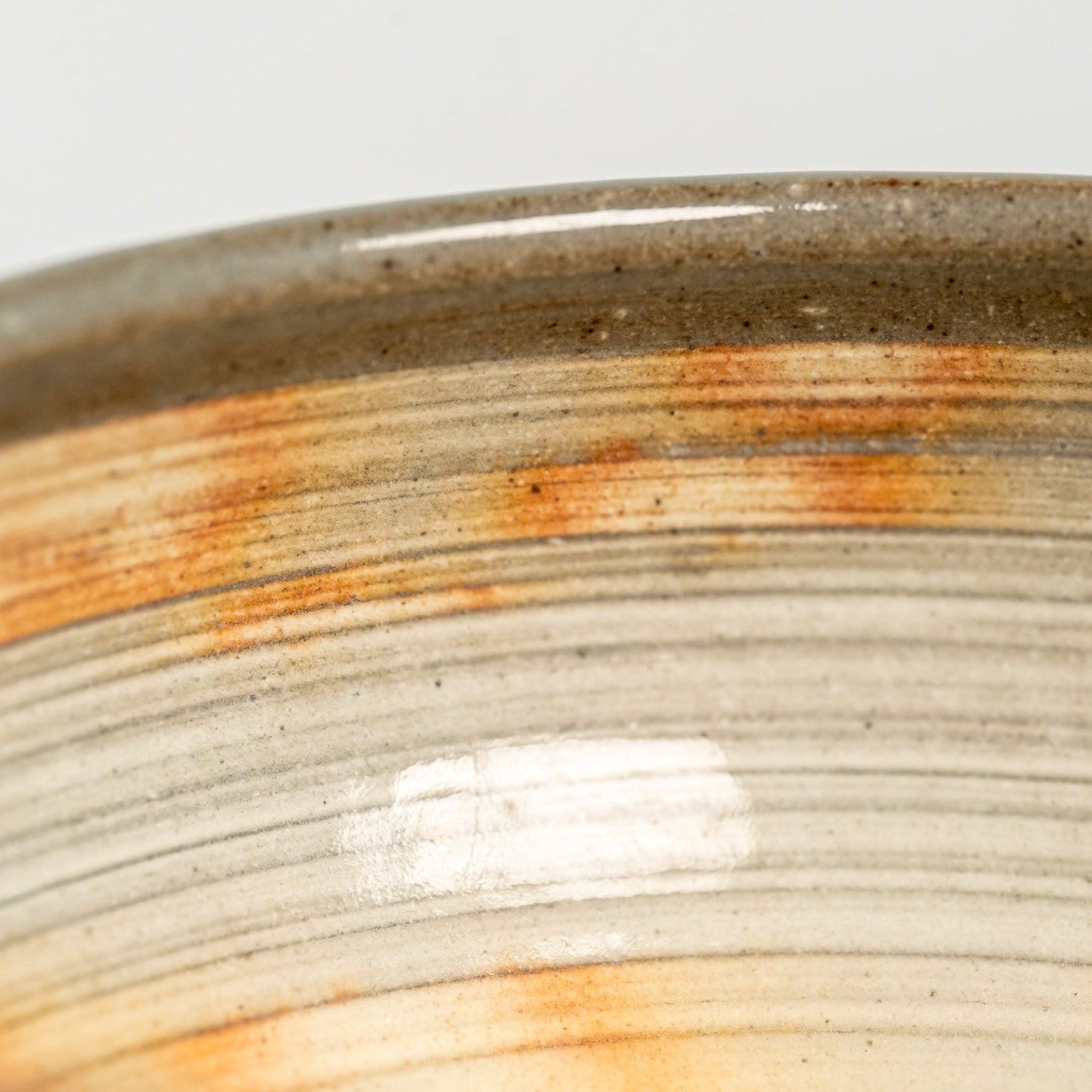
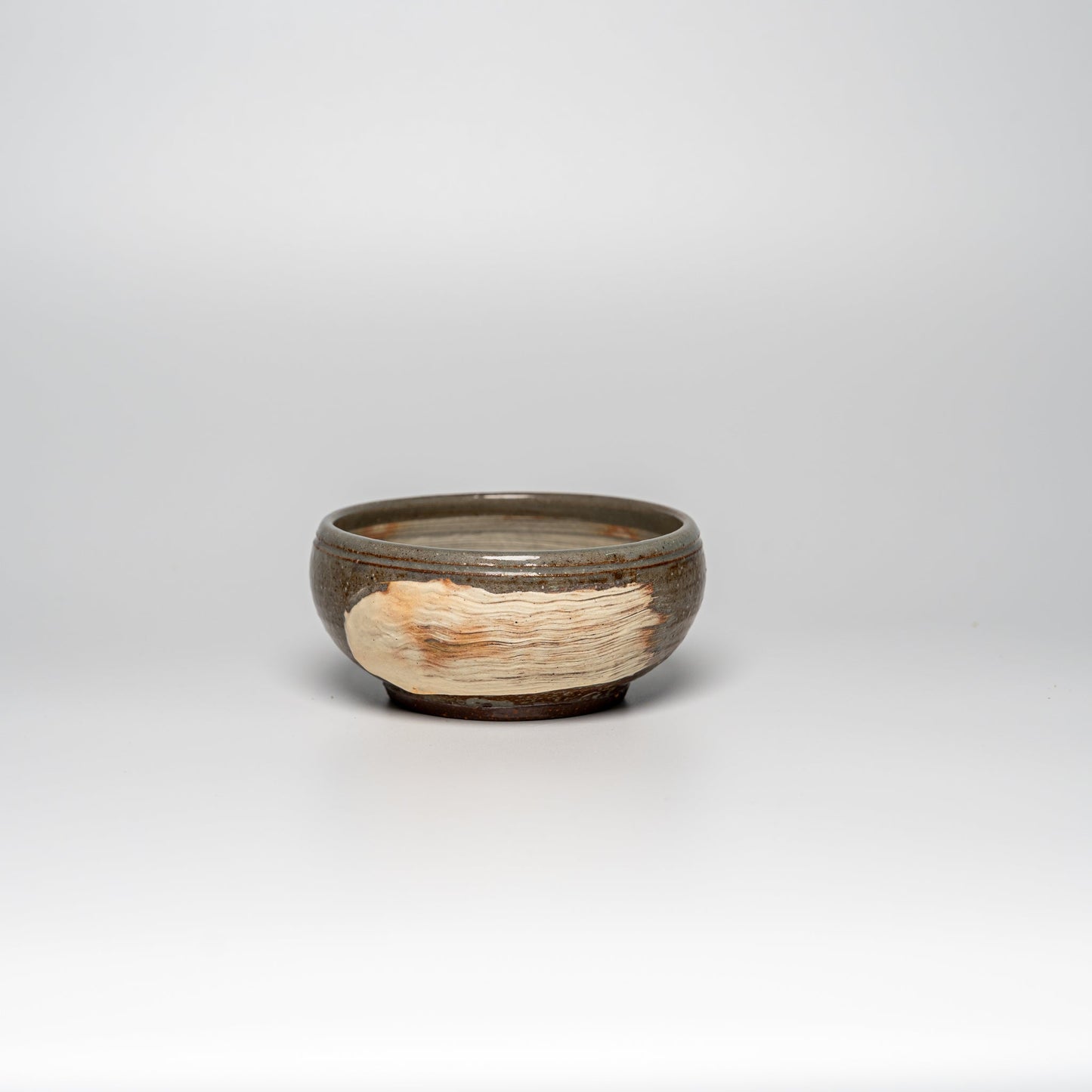
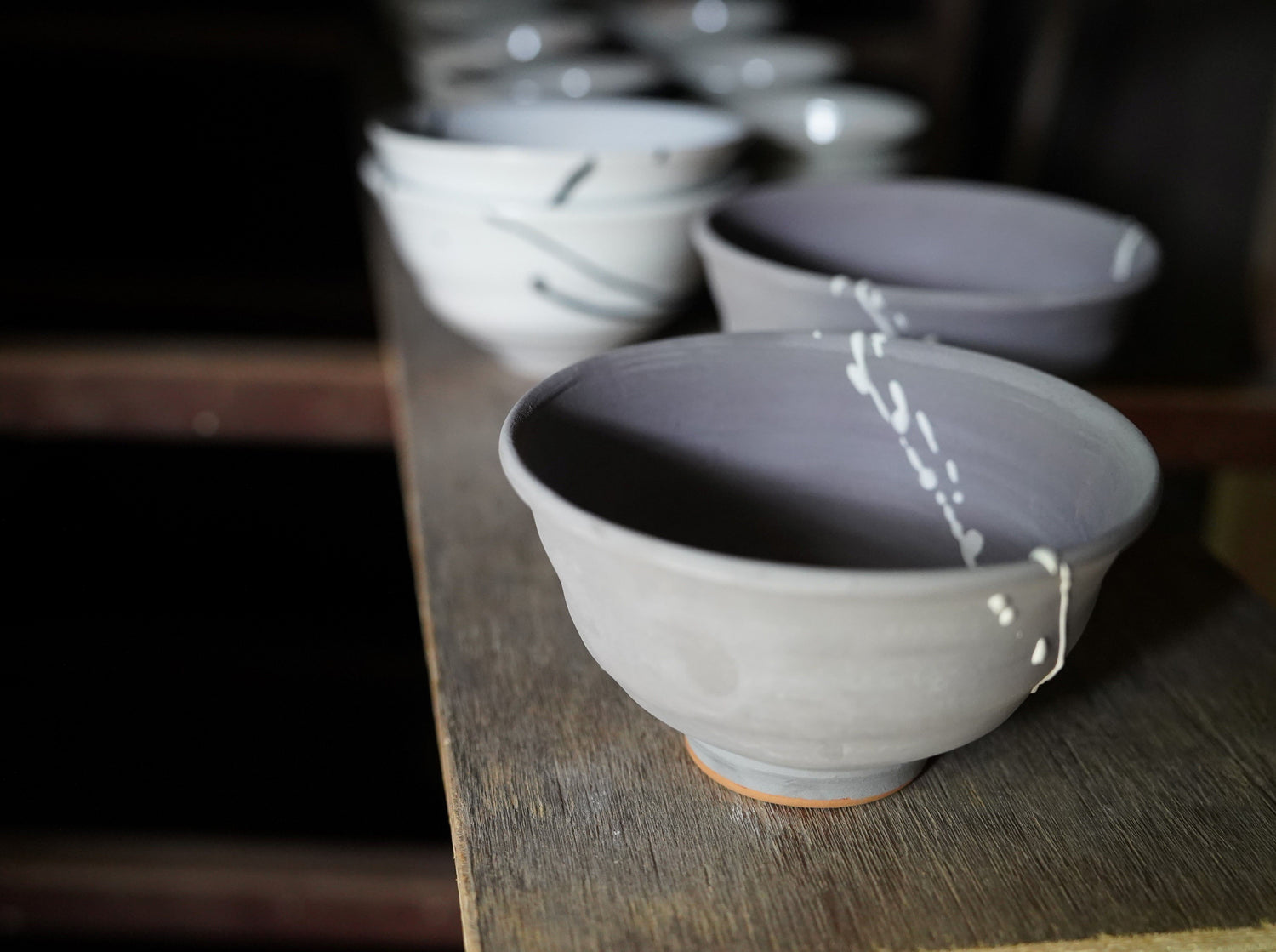
In what was previously his father's studio, home to six full time working artists, Matsuno-san now works on his own, pushing the boundaries of what is considered classically Hagi yaki.
Adding a contemporary approach to the 400 year old form, his work features glaze colours not traditionally seen in Hagi yaki. Alongside his more traditional works, it is not uncommon to find deep ruby reds, bright blues and greens, and even his signature mauve glaze.
